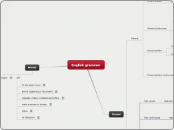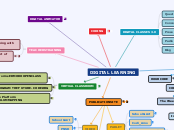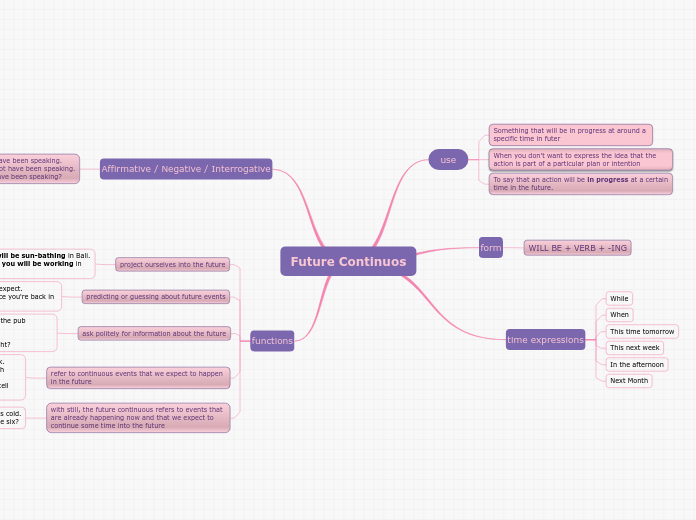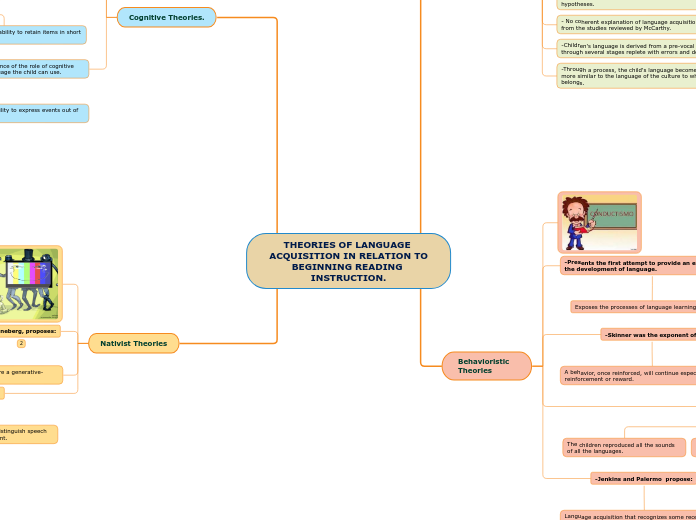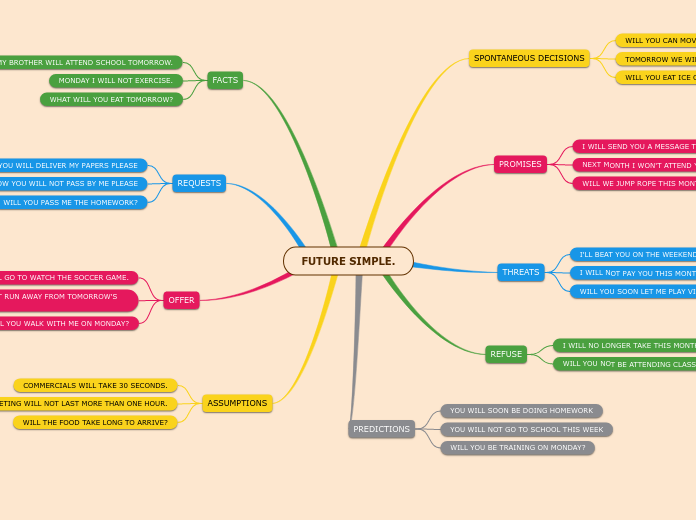English grammer
Words
for deduction.
I expect he'll want us to get on with it.
•The phone's ringing. That will be Mark.
Habits
A cat will always find a warm place to sleep.
•My car won't go any faster than this.
make promises or threats.
I'll do it at once.
•I'll phone him back immediately.
•I won't forget this.
requests, orders, invitations and offers.
Will you give me a hand? •
Will you please take a seat?
Events happening at the present
The car won't start.
•If that's the phone, I'll get it.
•Will you have another cup of coffee?
When we use 'will' referring to the present, the idea being expressed is usually one of 'showing willingness' or 'will power'
My baby won't stop crying. I've tried everything and I'm really exhausted.
•I am the boss. You will do as I say.
To talk about future
explained in tenses
We can replace 'going to go' by 'going'. •I'm going out later. •She's going to the exhibition tomorrow
Tenses
What to use when
present perfect or past simple
The past simple is used to talk about actions in the past that have finished.
It talks about 'then' and definitely excludes 'now'.
The present perfect simple to look back on actions in the past from the present. It always includes 'now'.
We use time expressions like 'yesterday', 'ago', 'last year', 'in 1999' with the past simple.
•We spoke to him yesterday
We use time expressions like are 'ever', 'never', 'since' with the present perfect.
•I've never seen so many people here before.
Present perfect simple or continuouse
Often there is very little difference between the present perfect simple and the present perfect continuous. In many cases, both are equally acceptable.
To emphasize the action, we use the continuous form.
We've been working really hard for a couple of months. She's been having a hard time.
To emphasize the result of the action, we use the simple form.
I've made fifteen phone calls this morning.
He's written a very good report.
When an action is finished and you can see the results, use the continuous form.
•The phone bill is enormous. You've been calling your boyfriend in Australia, haven't you?
•You're red in the face. Have you been running?
When you use the words 'ever' or 'never', use the simple form.
•I don't know them. I've never met them.
•Have you ever heard anything so strange in your life.
Past simple or continuouse
Both the past simple and the past continuous refer to completed actions in the past. Most of the time when we are talking about such actions, we use the past simple. This is by far the most common way of talking about the past.
I lived there for six years
Only use the past continuous when you want to emphasize the continuity of the action.
I was thinking about you the other day.
When we use these two forms in the same sentence, we use the past continuous to talk about the "background action" and the past simple to talk about the shorter completed action.
It was raining hard when we left the building.
Present simple or present continuouse
Present simple is used to talk about habits and facts. present continuouse talk about things which are happening how. they are more short term
I don't usually have cereals for breakfast but I'm having some this morning because there is nothing else.
Future
Will
At the moment we make a new decision or plan
Bye. I'll phone you when I get there.
•I'll answer that.
We use with I think I hope
I think I'll go to bed now
. •I think she'll do well in the job.
We add may be probably etc to make the belief less certain
I'll probably come back later.
•He'll possibly find out when he sees Jenny.
Future events which we believe are certain
The sun will rise over there tomorrow morning.
•Next year, I'll be 50.
Going to
for predictions based on the evidence we see now
Look out! That cup is going to fall off.
Plan for the future
They're going to launch it next month.
We're going to have lunch first.
Past
Past perfect continuouse
When reporting things said in the past
She said she had been trying to call me all day
They said they had been shopping
To say what had been happening befor something else happened
It had been snowing for a while before we left
He was out of breath when he arrived because he had been running
Look back at a situation in progress
It was a good time to invest. Inflation had been falling for several months.
We had been thinking about buying a new house. but then we decided to stay here
Past perfect
To report what people had said
He told me they had already payed the bill
To talk about things happened befor a particular point in past
She had already told him when I went there.
I hadn't known the bad news when I spoke to her
Past continuouse
Describe background actions when something else happened
I was walking in the street when I fell over
She was talking to me on the phone and it suddenly went dead
Emphasize the continuing process of activity or period of that activity
While I was driving home. peter was trying to contact me
Sorry were you sleeping
I was thinking about him last night
In 1990's few people were using mobiles
Past simple
period of time
she lived in tokio for seven years
They were in london from monday to thursday
Actions and states completed in the past
She came back last friday
I saw her in the street
They didn't agree to the deal
Present
Present perfect continuouse
Usually used with since, for, for days, all week etc.
I have been waiting to do that for ten years
She has been working here since 2001
Can refer to series of actions
She has been writing to her regularly for couple of years
University has been sending students here for a long time to training
An action that has not finished
I have been learning english for twenty years, but still I'm not very good in english
An action which has already finished. but we still can see evidence
Kitchen is a mess. who has been ckooking
You look tired. have you been sleeping properly
Present perfect
Look back at more distant past
They have often talked about it in the past
She has done this type of projects many times before
We use ever (for questions) and never when se talk about distant past
I have never met him
Havd you ever been to sri lanka
To look back at the recent past from present
I have brocken by watch. So I dont know what time it is
They have cancelednthe meetting
We use just, already or yet to talk about recent past
We have already talked about that
Hans't she arrived yet
Present continuouse
The action is at a definete point in the future and is already arranged
I'm meeting her at 6.30
Isn't he coming to dinner
Action is true at the present time. but we don't think it will be true in the future
Are youn getting enough sleep?
He is thinking about leaving his job
Action is taking place at the time of speaking
It's raining
Simple present
Applications
Thoughts and feelings at the time of speaking
They don't ever agree with us
Do you understand what I'm trying to say
Future facts usually found in a time table
Christmas day falls on a monday this year
The plane leaves at 5 tomorrow
Facts
Water freezes at 0 C
What does this expression mean?
Regular actions or events
They drive to the office everyday
She doesn't come here often
